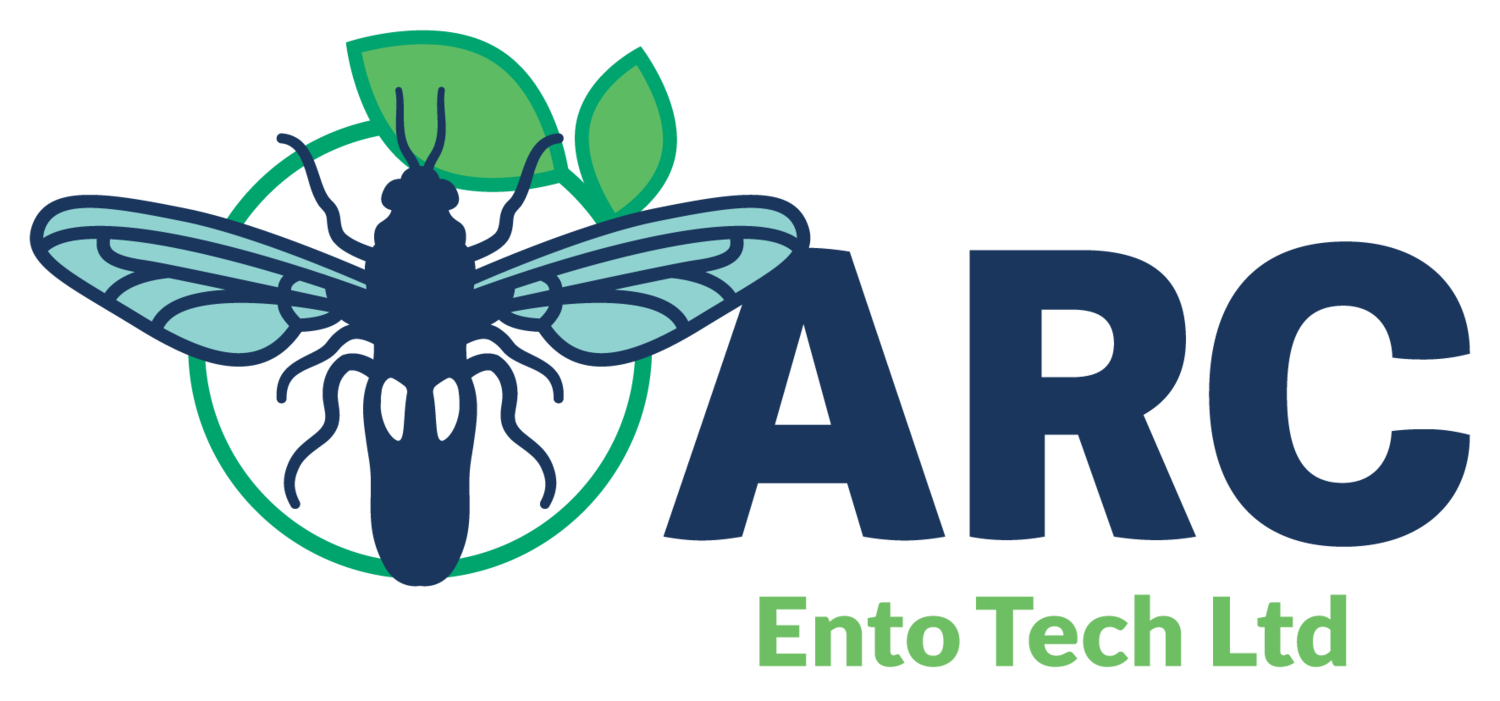
Hermetia Illucens
The Black Soldier Fly
Nature’s Efficient Waste Processor
To process organic waste ARC’s solution draws on the special capabilities of the black soldier fly (BSF) to provide a sustainable and commercially viable process.
The Black Soldier Fly (Hermetia Illucens) is a true fly of the family Stratiomyidae. Though originally native to the Americas, it now occurs worldwide in tropical and temperate regions. Adults consume nothing but water, do not approach humans, do not bite or sting, and do not vector or disseminate any specific diseases. BSF larvae feed on an immense variety of organic material and have been described as “not picky eaters”.
They are already used in small-scale waste management to process manure, rice straw, food waste, distillers’ grains, fecal sludge, animal offal, and kitchen waste and other organics. BSF larvae may be the most efficient waste processors among the flies and their feed conversion ratios are known to be superior to both crickets and mealworms. BSF larvae are also edible and are used as animal feed and can be consumed by humans (tastes permitting). They accumulate sufficient lipids to provide energy for the non-feeding adult to the point where they can be converted into biodiesel. What they do not consume, combined with their nitrogen-rich frass, can be used as fertiliser.
Their three week larval stage is longer than that of house and carrion flies (at less than 5 days) which means a single BSF larva will consume a larger amount of substrate and produce larger pupae. When BSF larvae are at the pre-pupa stage, they instinctively leave the substrate and move to a high, clean place - a behaviour called “self-harvesting” - which removes an otherwise labor-intensive step from their farming.
All these benefits make the larvae of the Black Soldier Fly a highly practical organism to process organic wastes and serve as a sustainable animal, and possibly human, food source.
